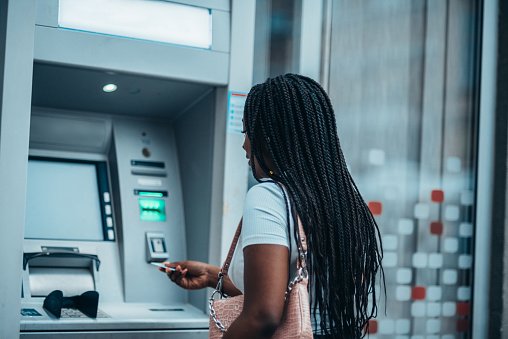Introduction.
Understanding your credit bureau status in Nigeria is one of the smartest financial moves you can make.
Your credit report and score play a huge role in determining whether banks or lenders will trust you with loans, mortgages, or even credit cards.
It’s basically like your financial reputation—a snapshot of how well you handle borrowing and repayments.
If you’re planning to apply for a loan, buy a home, or even start a business, knowing your credit status can save you from surprises and help you make informed decisions.
In Nigeria, credit bureaus like CRC Credit Bureau, CreditRegistry, and XDS Credit Bureau gather and maintain financial records.
They keep track of how much you owe, how often you pay, and whether you’ve had issues like defaulting on loans.
These bureaus share your credit history with lenders when you apply for credit, helping them assess your financial reliability.
Now, if you’re thinking, “How do I even find out what my credit status looks like?” don’t worry. I’ll guide you step by step on how to check your credit bureau status in Nigeria. It’s not as complicated as it sounds, and you’ll thank yourself later for being proactive.
Why Knowing Your Credit Status Matters
Your credit status isn’t just for big decisions like getting a loan or buying a house. It also affects smaller things like negotiating interest rates or qualifying for installment payment plans. For example:
- Loan Approvals: Most Nigerian banks and lenders rely on credit bureau reports to decide if they should approve your loan application.
- Interest Rates: A good credit score can get you lower interest rates, saving you money in the long run.
- Financial Planning: Knowing where you stand can help you identify areas to improve, such as paying off outstanding debts or avoiding late payments.
Neglecting your credit status can lead to missed opportunities or even financial roadblocks. Plus, errors in your credit report (yes, they happen!) can harm your reputation without you even knowing.
How Do I Check My Credit Bureau Status in Nigeria?
Here’s the good news: checking your credit status in Nigeria is straightforward. Here’s how you can do it:
1. Choose a Credit Bureau
In Nigeria, there are three main credit bureaus licensed by the Central Bank of Nigeria (CBN):
- CRC Credit Bureau (crc.com.ng)
- CreditRegistry (creditregistry.ng)
- XDS Credit Bureau (xdscredit.com)
Each bureau offers slightly different services, but all can provide your credit report and score.
2. Visit the Credit Bureau’s Website
Go to the official website of your chosen credit bureau. They usually have a section labeled “Get Your Credit Report” or something similar.
3. Sign Up or Log In
You’ll need to create an account if you’re a first-time user. Be ready to provide some basic information like your name, date of birth, email address, and phone number.
Most platforms require you to verify your identity, so keep your BVN (Bank Verification Number) handy.
4. Request Your Credit Report
Once logged in, look for an option to request your credit report. Some bureaus offer a free report once a year, while others charge a small fee (usually around ₦1,500 to ₦5,000).
5. Review Your Report
After getting your report, take your time to review it. Look for:
- Outstanding debts
- Payment history
- Errors or discrepancies (e.g., loans you didn’t take)
If you spot any mistakes, contact the bureau immediately to dispute and correct the errors.
Common Questions About Credit Bureau Status in Nigeria
How Often Should I Check My Credit Status?
At least once a year is a good rule of thumb. However, if you’re planning to apply for a loan or suspect an error on your report, it’s worth checking more frequently.
Will Checking My Credit Report Affect My Score?
No, checking your own credit report is considered a “soft inquiry” and doesn’t affect your score. Only “hard inquiries,” like those made by lenders when you apply for credit, can impact your score.
What Can I Do if My Credit Score is Low?
Improving a low credit score takes time, but here are some tips:
- Pay your bills on time.
- Clear outstanding debts.
- Avoid applying for too much credit in a short period.
What if I Don’t Have a Credit History?
If you’ve never taken a loan or used a credit card, your credit report may not exist. Building credit starts with small steps, like applying for a small loan or opening a savings account with credit-linked options.
What Happens if I Ignore My Credit Status?
Ignoring your credit status is like walking blindfolded in your financial journey. You could end up:
- Facing loan rejections.
- Paying higher interest rates.
- Falling victim to fraud if there are errors in your report.
Taking the time to check your credit status gives you control. You can fix errors, improve your score, and plan your financial future better.
Conclusion
Your credit bureau status is more than just a number—it’s a reflection of your financial habits and trustworthiness.
By taking a few simple steps to check it, you can stay ahead of potential issues and open doors to better financial opportunities.
So, when was the last time you checked your credit bureau status? If you haven’t yet, why not start today?





GIPHY App Key not set. Please check settings